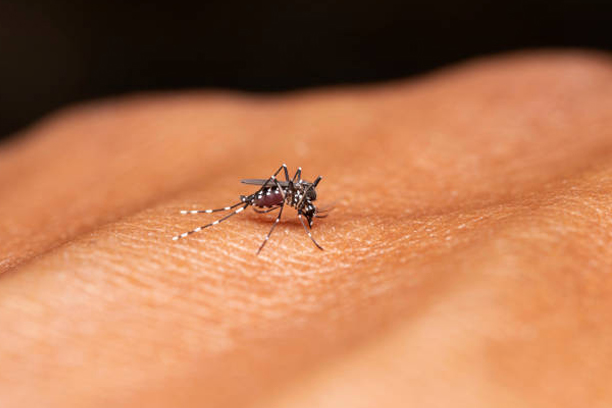Dengue fever is a virus-borne illness spread by mosquito bites infected with one of the dengue viruses. Common dengue symptoms are flu-like, but they can intensify into severe dengue (dengue hemorrhagic fever), a condition that can be fatal. Your risk of developing severe symptoms rises if you contract the infection again. Even if you have already had dengue, you can still take the vaccine.
What is dengue fever?
Dengue fever is an illness caused by the bite of a mosquito carrying one of four different strains of dengue virus (DENV). Tropical and subtropical locations, such as Central and South America, Africa, some sections of Asia, and the Pacific Islands, are where the virus is most frequently found.
With the exception of a pregnant woman and her unborn child, dengue is not infectious from person to person. The initial infection normally has modest symptoms, but if you develop the infection a second time with a different strain of DENV, your chance of serious complications increases.
How common is dengue fever?
According to research, about 400 million people contract dengue each year, but the majority (almost 80%) show no symptoms.
SYMPTOMS AND CAUSES
What are the symptoms of dengue fever?
The majority of dengue infections are symptomless. High temperature (104°F/40°C) is usual if you do experience symptoms, accompanied with:
- Rash
- Extreme discomfort behind your eyes
- Nausea or vomiting
- Joint, muscle, and bone pain
The first signs of dengue fever begin four to ten days after a mosquito bite and remain for three to seven days. After their first symptoms start to fade, about 1 in 20 dengue patients will develop severe dengue.
Severe dengue (dengue hemorrhagic fever)
A life-threatening progression of dengue symptoms is considered severe dengue. Typically, 24 to 48 hours after your fever goes away, you will start to see warning signs of severe dengue.
Severe dengue is a potentially lethal medical emergency. If you have any of the following symptoms and have dengue or reside in a region where dengue is prevalent, visit the closest ER immediately.
- Abdominal pain
- Frequently throwing up
- Having blood in your vomit or your faeces (stool)
- Bleeding gums or nose
- Extreme drowsiness, agitation, or restlessness
What causes dengue fever?
Any one of the four dengue viruses can lead to dengue fever. The dengue virus can enter your blood and multiply when a mosquito biting you transmits the disease. You may feel ill due to the virus itself and the immune system’s reaction.
The virus can damage blood components that help form clots and give your blood vessels shape. Internal bleeding may result from this, combined with specific immune system-produced substances, causing blood to flow out of your vessels. This results in severe dengue symptoms, which can be fatal.
How does dengue fever spread?
Aedes mosquitos, which also spread diseases like Zika and chikungunya, spread dengue. A person with dengue fever is bitten by a mosquito, which subsequently bites another person, infecting them.
Is dengue fever contagious?
Unlike the flu, dengue fever cannot be transmitted from one person to another. Only if a pregnant woman contracts the disease can someone else contract dengue. If you contract dengue while pregnant or giving delivery, you could infect your unborn child.
What is the Treatment for Dengue Fever?
Dengue fever cannot be cured with a single drug. If you believe you have a dengue fever, use acetaminophen-containing painkillers and avoid aspirin-containing drugs since they may aggravate bleeding. Additionally, you ought to get enough rest, hydration, and medical attention. In the first 24 hours after your fever has subsided, if your symptoms worsen, you should visit a hospital right once to be evaluated for problems.
With the rise of dengue in this season, Sujata Birla Hospital believes that it is essential to understand the symptoms and causes of dengue which can eventually help us to seek medical attention promptly.


9 Comments
Pingback: Rise of Dengue Fever: Symptoms, Causes, and Treatments – Sujata Birla Hospital
Pingback: 7 Preventive Measures for Dengue Fever | Sujata Birla Hospital
Pingback: 7 Preventive Measures for Dengue Fever – Sujata Birla Hospital
Pingback: Hand, Foot, and Mouth Disease: Symptoms and Causes | Sujata Birla Hospital
Pingback: Tomato Flu | Sujata Birla Hospital
Pingback: World Malaria Day | Sujata Birla Hospital
Pingback: World Malaria Day – Sujata Birla Hospital
Pingback: Dengue Fever | Sujata Birla Hospital
Pingback: Meningitis: Symptoms and Causes | Sujata Birla Hospital